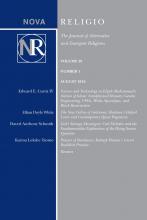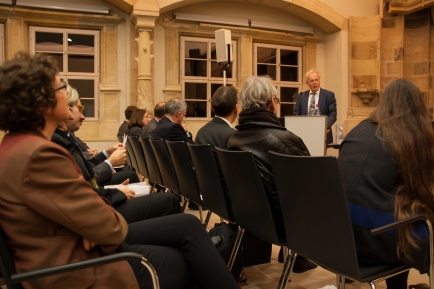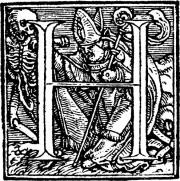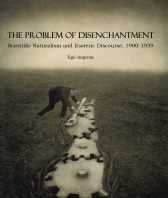 I was pleased to see this new review of The Problem of Disenchantment in the latest issue of Nova Religio. Christopher Plaisance generously concludes that
I was pleased to see this new review of The Problem of Disenchantment in the latest issue of Nova Religio. Christopher Plaisance generously concludes that
New review of The Problem of Disenchantment (Nova Religio)
Review symposium on “The Problem of Disenchantment”
The Journal of Religion in Europe has just published a review symposium on my book, The Problem of Disenchantment (2014). I’m excited to say that it contains critical reflections from three world-class scholars of religion, along with my own response. Hans Kippenberg, a well-known expert on Weberian approaches to the history of religion, evaluates some of the book’s claims in light of a broader reading of Weber’s oeuvre. Willem Drees, one of the leading figures in the “religion and science” field, takes a closer look at some of the points I made about the new natural theologies that emerged in the early twentieth century – specifically their relation to esotericism and “heterodoxy”. Finally, Ann Taves, a leading American scholar of religion working with (among other things) the cognitive science of religion and the notion of experience, continues a discussion that she and I have been having over the past few years regarding the perception, explanation and interpretation of “events” (for more on this, check out our forthcomming co-authored target article in Religion, Brain, & Behavior) . If you’ve got access, go ahead and read them!
While you are at it, you may also be interested in checking out my response, which I called “The Disenchantment of Problems: Musings on a Cognitive Turn in Intellectual History” (non-final version uploaded here, and added to my Academia page for easy access).
Max Weber Prize for “The Problem of Disenchantment”
On December 1, I was awarded the Max-Weber-Preis für Nachwuchsforschung from the Max Weber Center for Advanced Cultural and Social Studies in Erfurt for The Problem of Disenchantment. It was given in absentia, but upon receiving the manuscript of Prof. Hans Kippenberg’s laudatio, I was pleased to see that finally someone picked up on my namesake from the sagas, a certain “wayward Icelandic seafarer”. Kippenberg’s concluding words:
Es ist eine herausragende Arbeit eines Nachwuchswissenschaftlers in dem Feld zwischen Religionswissenschaft und Naturwissenschaft, ist bezogen auf Webers Forschungsprogramm, interdisziplinär angelegt und mit historischer Tiefe und langem Atem, wie man ihn von einem Seefahrer erwarten darf.
I guess Egil Skallagrimsson was actually more of a farmer than a sailor (incidentally that fits better with my own family background, too), but perhaps our shared warrior-poet mentality and ruthless brutality make the link stick nevertheless.
In any case, this is now the fourth prize for The Problem of Disenchantment, and perhaps the one that means the most to me. With Weber towering over the work for so long, and the book arguing for some serious revisions to Weberian approaches, it does mean a lot to get the recognition of an institution that, so to speak, carries Weber’s “routinized authority” in the present day.
Gerardus van der Leeuw Award to The Problem of Disenchantment
My PhD dissertation, The Problem of Disenchantment, has just won its second award. The Dutch Association for the Study of Religion (NGG – Nederlands Genootschap voor Godsdienstwetenschap), one of the oldest such national organisations in the world, recently publicised the winner of the Gerardus van der Leeuw Award. It’s the first time this prize, named after the famous Dutch phenomenologist of religion (and founder of the NGG), is awarded, which makes it a great honour.
The prize will formally be awarded at next year’s NGG meeting, which in 2014 will coincide with the big conference of the European Association for the Study of Religion (EASR) at the University of Groningen. (That conference is by the way promising to be a very exciting, as well as busy, event. Among the keynote lecturers are Bruno Latour and Carlo Ginzburg. In the shadow of such celebrity names, I’ve now been asked to put together a panel on some central concepts of my dissertation – which comes in addition to a panel session I’m already arranging together with Markus Davidsen and Carole Cusack. So lots to do.)
Last summer, The Problem of Disenchantment won ESSWE’s PhD Thesis Prize, making this the second award.
There’s a new doctor in town
On February 5, 2013, I was initiated into the higher mysteries of Academia, after publicly defending my dissertation entitled “The Problem of Disenchantment: Scientific Naturalism and Esoteric Discourse, 1900-1939”. Here’s a recollection of the ceremony in images.
The Problem of Disenchantment – invitation to a PhD defence
Last autumn I completed my PhD dissertation, and now it’s time to defend it. The defence is public, and will take place on February 5, 2013, at 12:00 in the Agnietenkapel of the University of Amsterdam. The event is open to anyone (with a max. capacity of 90 people), and I will give a short public lecture on the topic of my research prior to defending it in front of the committee.
While I have given hints about my research in a number of posts here at Heterodoxology, I am now happy to present an official abstract of the final product – the dissertation itself:









